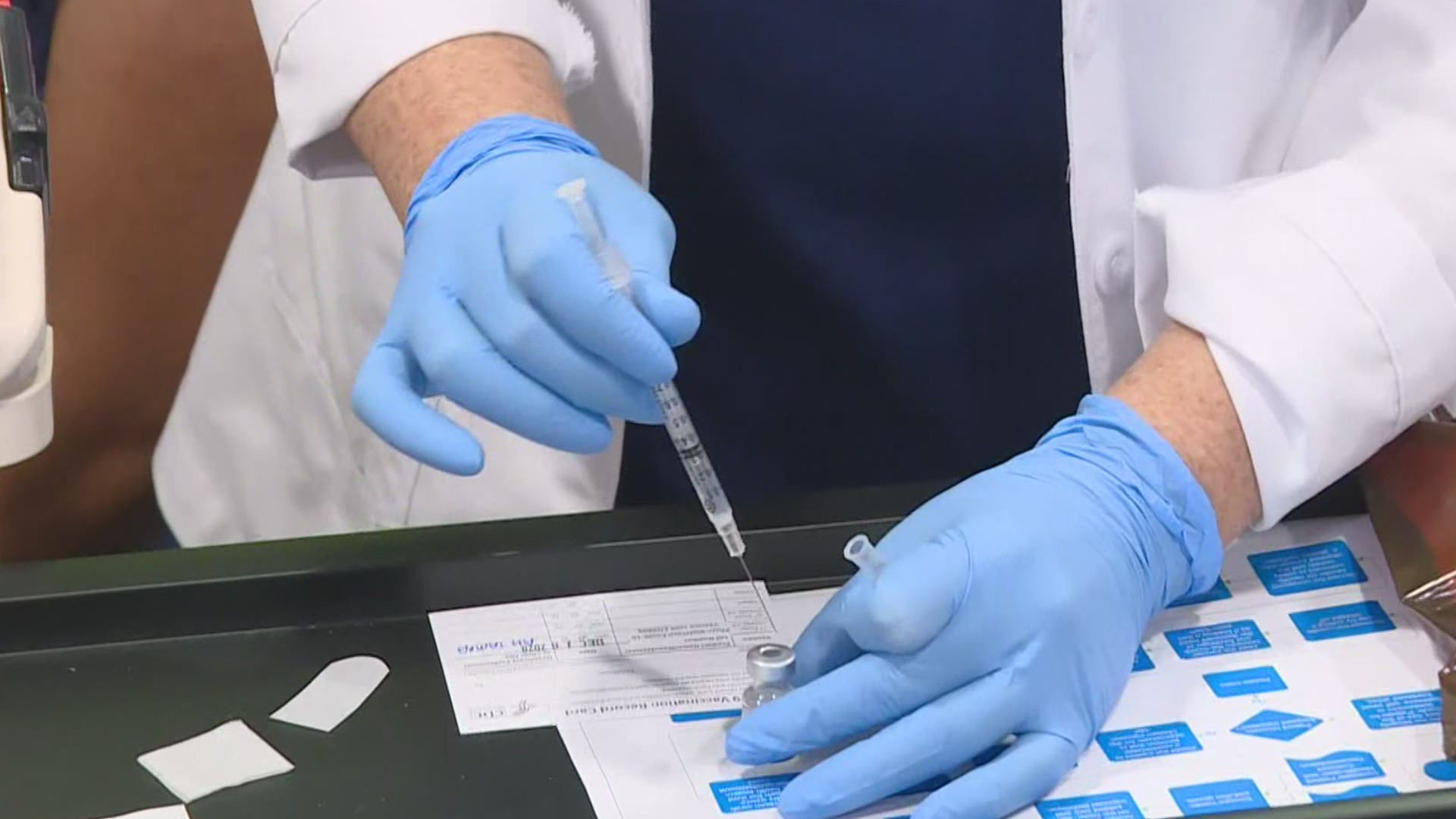TAMPA, Fla. — You may have heard it from family and friends: they don’t want to get the COVID-19 vaccine because they’ve heard of people having a bad reaction.
But according to the Centers for Disease Control and Prevention, the risk of an allergic reaction is astronomically low. Twenty-one people had severe reactions after nearly two million doses of the vaccine were distributed.
"The virus itself has caused more long-term and short-term effects and deaths than any vaccine in the world," said Dr. Anthony Harris, the associate medical director at WorkCare. He says that the risks of getting the virus are far more dangerous than the normal side effects of the vaccine.
Common symptoms after injections of both the available Pfizer and Moderna vaccines include:
- Pain and swelling at the injection site
- Fever
- Chills
- Headache
- Tiredness
The more serious allergic reaction people are warning about often stem from preexisting allergies to prior vaccines or other injectable medications.
Although there are reported cases of severe allergic reactions, doctors say it's not out of the ordinary. There are about 1.3 reported severe allergic reactions to the flu vaccine for every one million shots.
If you have allergies to pets, food, oral medications or latex, you can still get the vaccine. If you have allergic reactions to other vaccines or injectable therapies, talk to your doctor to outweigh the benefits of the vaccine with your risk.
It also says vaccination sites should be able to treat a severe allergic reaction by having the proper medical services like epinephrine, H-1 antihistamines, a blood pressure cuff, stethoscope and a timing device to take a pulse.
The CDC is also using two tools to help track side effects or adverse reactions to the vaccine.
If you get the vaccine, you can report to the Vaccine Adverse Event Reporting System or VAERS.
And, the CDC has activated V-Safe, a vaccination health checker. It's a smartphone-based tool that uses text messages and web surveys to provide personalized health check-ins after you get a vaccine.
You can tell the CDC if you have side effects or reactions or if you're doing fine. Depending on your answers, the CDC may call to check in on you. This is voluntary, and you can opt-out at any time.
- Bucs vs. Packers: The NFC Championship is Sunday in Green Bay
- Pinellas County: COVID-19 vaccine registration site suffers outage
- Heavy fog blamed in Tampa Bay boating crash that injured 7 people
- Legendary broadcaster Larry King dies at 87
- What you should and shouldn't do after getting your COVID-19 vaccine
- Florida surgeon general orders vaccine providers to ensure recipients live in the state
►Breaking news and weather alerts: Get the free 10 Tampa Bay app
►Stay In the Know! Sign up now for the Brightside Blend Newsletter

